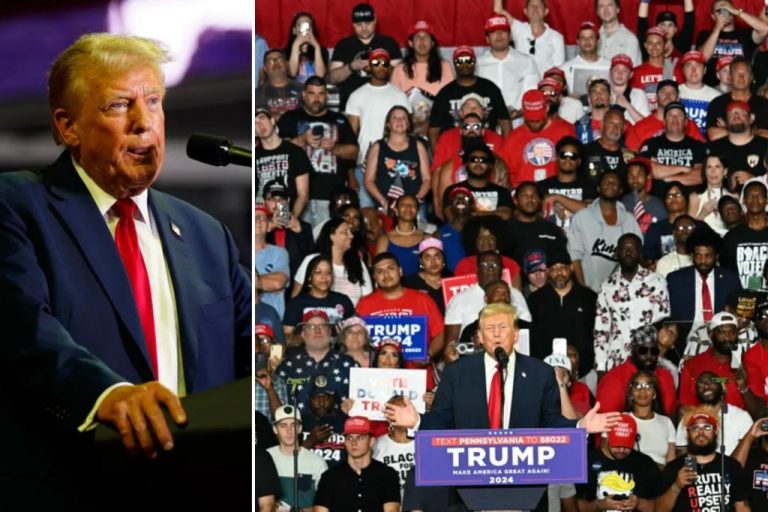Trump’s military strategy gives hope to Ukraine, not isolationism.
Trump, Vance’s doctrine of military realism a sign of hope for Ukraine — and not isolationist
Amidst escalating tensions in Eastern Europe, Ukraine looks to the United States for support in the face of Russian aggression. The recent statements from former President Trump and Senate candidate J.D. Vance signal a shift in the country’s approach to the conflict, embracing a doctrine of military realism that offers hope for Ukraine’s security.
Trump, known for his unconventional foreign policy tactics, has often been criticized for his seemingly isolationist stance. However, his recent comments on Ukraine suggest a different approach. By advocating for military strength and a more robust defense strategy, Trump is sending a message of solidarity to the Ukrainian people. This shift towards military realism signals a departure from his previous rhetoric and a recognition of the dangers posed by Russian expansionism.
Similarly, J.D. Vance, a prominent figure in conservative politics, has echoed Trump’s sentiments on Ukraine. As a candidate for the U.S. Senate, Vance’s support for a more proactive military stance aligns with the growing bipartisan consensus on the need to confront Russian aggression. His position on Ukraine reflects a broader shift in the Republican Party towards a more assertive foreign policy, one that prioritizes the security of U.S. allies in the face of external threats.
For Ukraine, the support of influential figures like Trump and Vance could not come at a more critical time. With Russian troops amassing along the border and ongoing skirmishes in the Donbas region, the country faces an existential threat that requires a robust response. The doctrine of military realism espoused by these leaders offers Ukraine a glimmer of hope in an otherwise bleak geopolitical landscape.
But what exactly does military realism entail, and how does it differ from isolationism? At its core, military realism emphasizes the importance of a strong national defense and a proactive approach to security threats. Unlike isolationism, which seeks to avoid foreign entanglements altogether, military realism acknowledges the interconnected nature of global politics and advocates for a more engaged role on the world stage.
From a practical standpoint, this means increasing military spending, modernizing defense capabilities, and forming strategic alliances with like-minded partners. By investing in a strong defense infrastructure, countries like Ukraine can deter aggression and protect their sovereignty against external threats. This proactive approach to security challenges is essential in an era of heightened geopolitical tensions and shifting power dynamics.
In the context of Ukraine, the embrace of military realism represents a crucial shift in strategy. By aligning with the U.S. and other NATO allies, Ukraine can strengthen its position vis-a-vis Russia and enhance its ability to resist further encroachments on its territory. This alignment with Western powers not only provides Ukraine with much-needed military support but also sends a clear signal to Moscow that aggression will not be tolerated.
Moreover, the doctrine of military realism underscores the importance of a values-based foreign policy that prioritizes democracy, human rights, and the rule of law. By standing firm in defense of these principles, countries like Ukraine can rally international support and build coalitions to counter authoritarian regimes that threaten global stability. In this sense, military realism is not just about military strength but also about upholding the values that underpin a free and open society.
As Ukraine navigates the complexities of the current geopolitical landscape, the support of leaders like Trump and Vance provides a beacon of hope in an uncertain world. By championing a doctrine of military realism, these figures offer Ukraine a path forward, grounded in strength, unity, and shared values. In the face of external aggression and internal challenges, the embrace of military realism signals a commitment to a more secure and prosperous future for the Ukrainian people.
In conclusion, the recent statements from Trump and Vance on Ukraine reflect a broader shift towards a doctrine of military realism in U.S. foreign policy. This approach, which emphasizes the importance of a strong national defense, proactive security measures, and strategic alliances, offers hope for Ukraine in the face of Russian aggression. By aligning with the principles of military realism, Ukraine can bolster its defenses, strengthen its position on the world stage, and resist external threats to its sovereignty. In a time of uncertainty and escalating tensions, the support of influential leaders like Trump and Vance signals a new chapter in Ukraine’s quest for security, stability, and freedom.








